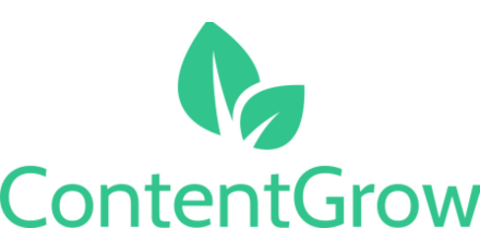Instagram is now an SEO tool according to Adobe Express study
Google now indexes Instagram content. Here’s how marketers are rewriting posts and shifting budgets
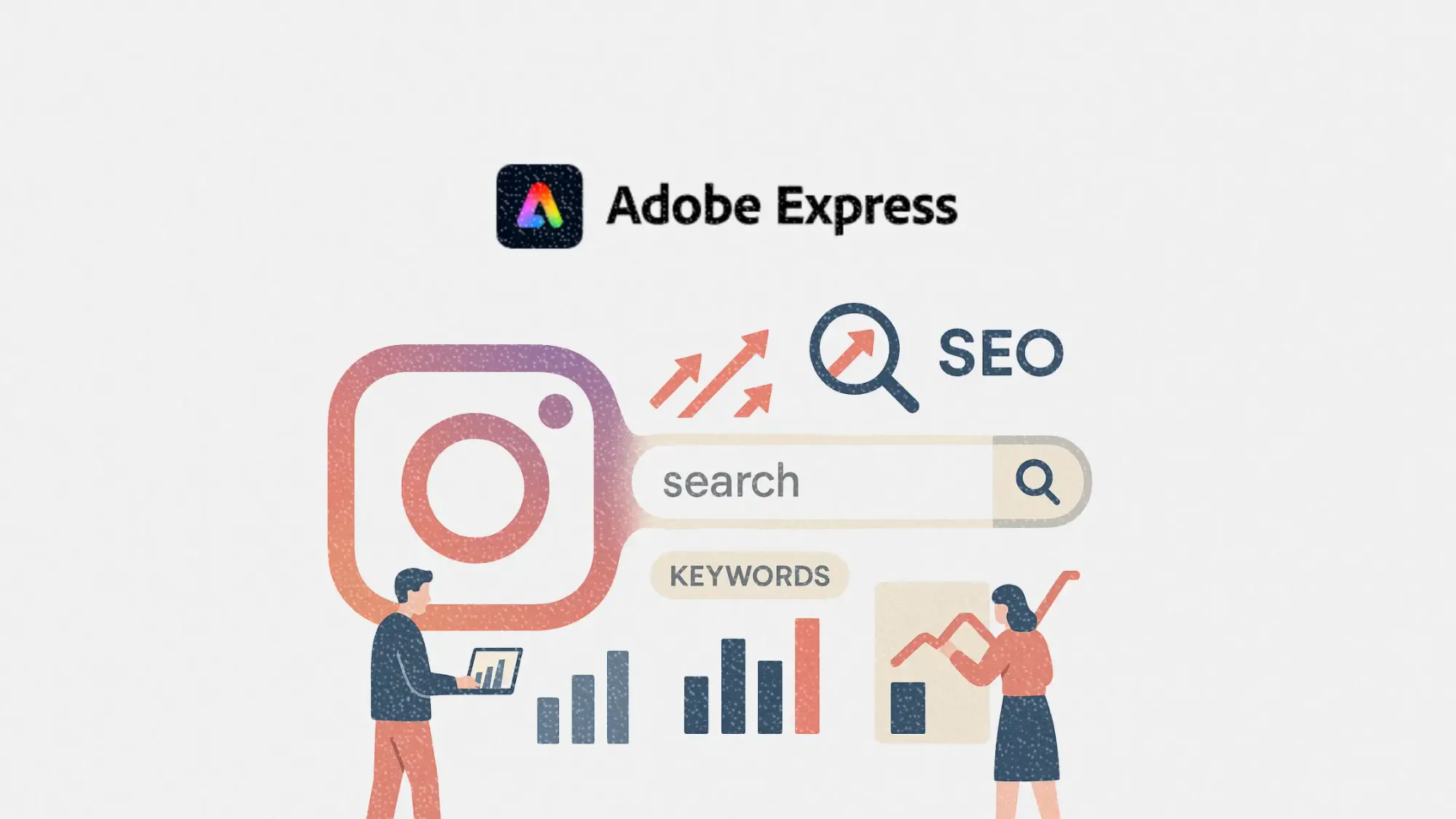
Instagram is no longer just a place for pretty pictures or Reels engagement. Thanks to a shift in how Google indexes public content, the app is also evolving into a powerful tool for search engine optimization. That’s especially true for professional accounts, whose posts can now appear in Google Search.
A recent study from Adobe Express surveyed 1,000 business owners and marketers to find out how this development is impacting digital strategy, content performance, and marketing budgets. The results point to a growing intersection between social and search, with Instagram sitting right in the middle.
This article explores what’s changing, how marketers are responding, and why Instagram content could soon rival traditional SEO and paid campaigns when it comes to visibility and ROI.
Short on time?
Here’s a table of contents for quick access:
- Instagram content is now indexed by Google
- Instagram SEO is already outperforming ads for some brands
- Marketers are rethinking budgets and strategies
- What marketers should know and do next
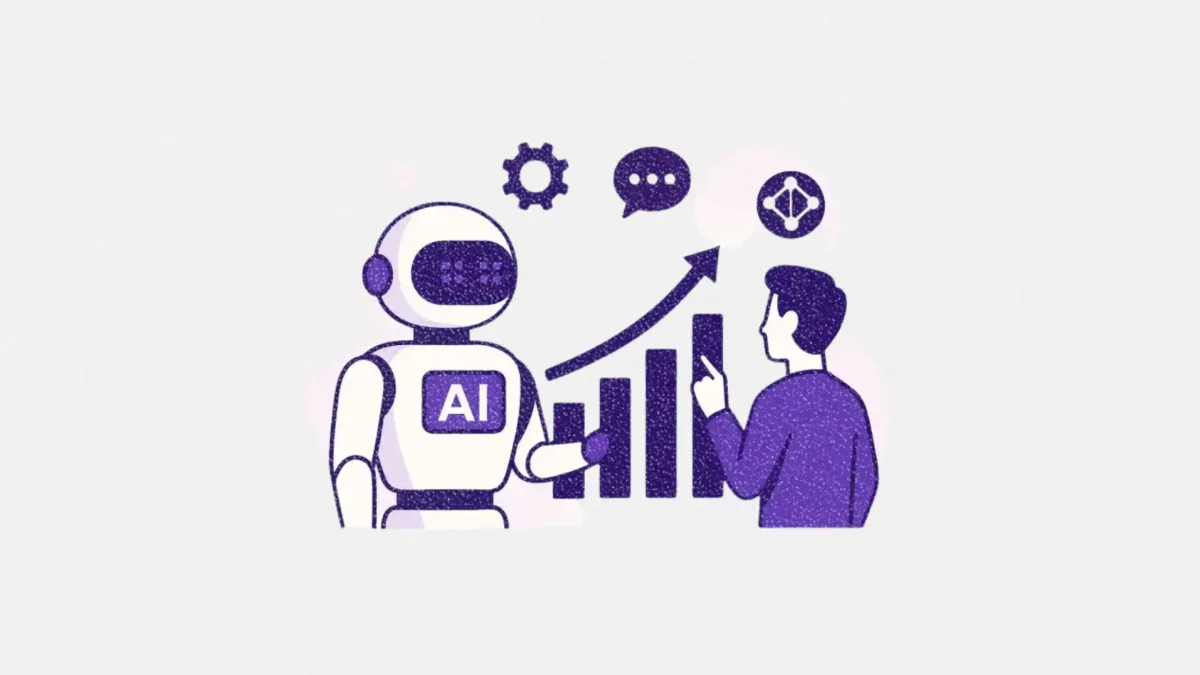
Instagram content is now indexed by Google
A quiet but important change to Google Search means professional Instagram accounts now have their public content indexed and shown in results. Adobe Express surveyed 1,000 business owners and marketers to explore what this means for brands.
- 53% of respondents are already aware of this change
- 30% say they’ve updated how they post on Instagram because of it
- Another 26% plan to change their approach soon
The shift has sparked a wave of SEO-conscious behavior on the platform. Among those updating their Instagram strategies:
- 37% are optimizing their bios and profiles for SEO
- 33% are writing longer, keyword-rich captions
While 72% say they already incorporate some form of social SEO, 24% are just getting started, highlighting how fast the trend is catching on.
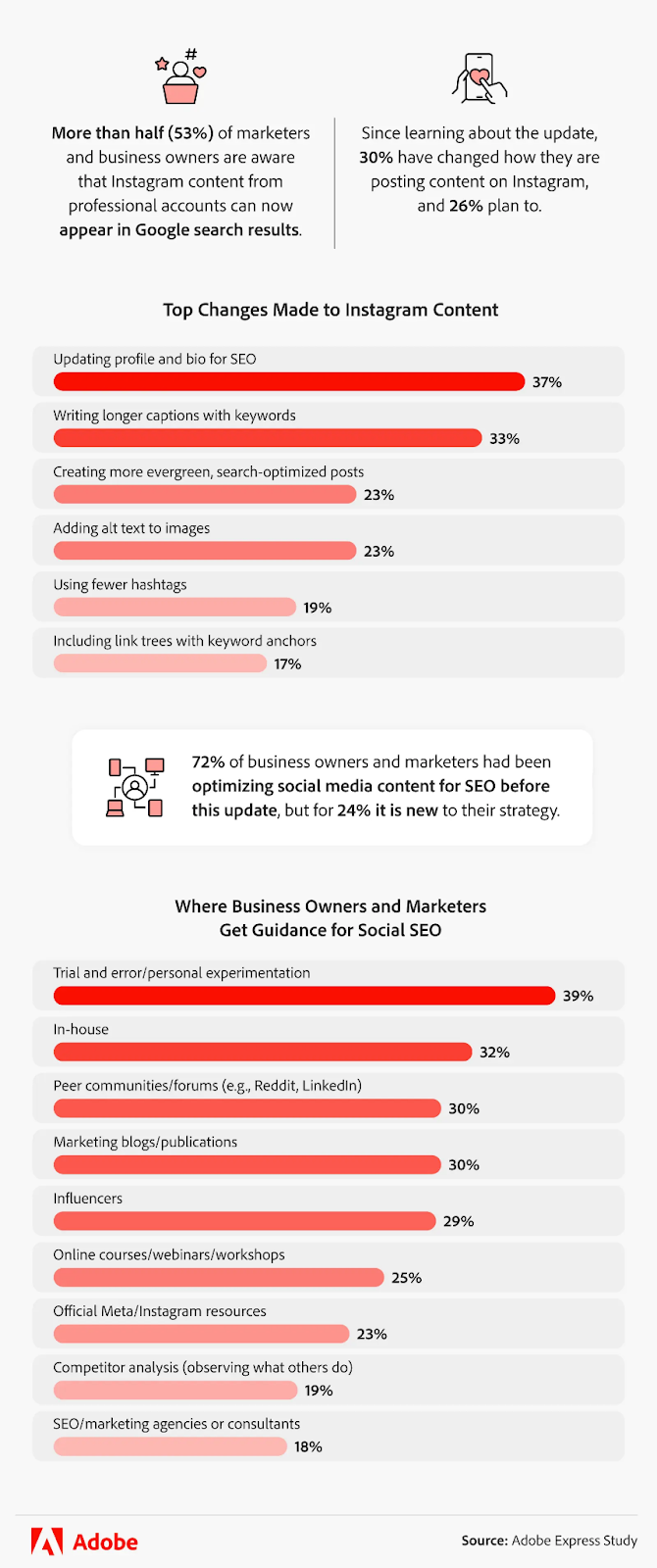
Instagram SEO is already outperforming ads for some brands
According to the survey, 23% of respondents said SEO-optimized Instagram content performs better than paid ads or other SEO strategies for their brand. Another 51% said it sometimes does.
The top reported benefits of Instagram SEO include:
- Increased engagement (65%)
- More website traffic (54%)
- Follower growth (51%)
This shift signals a growing belief in the long-term value of organic social content, especially as algorithms favor discoverability and authenticity over pure ad spend.
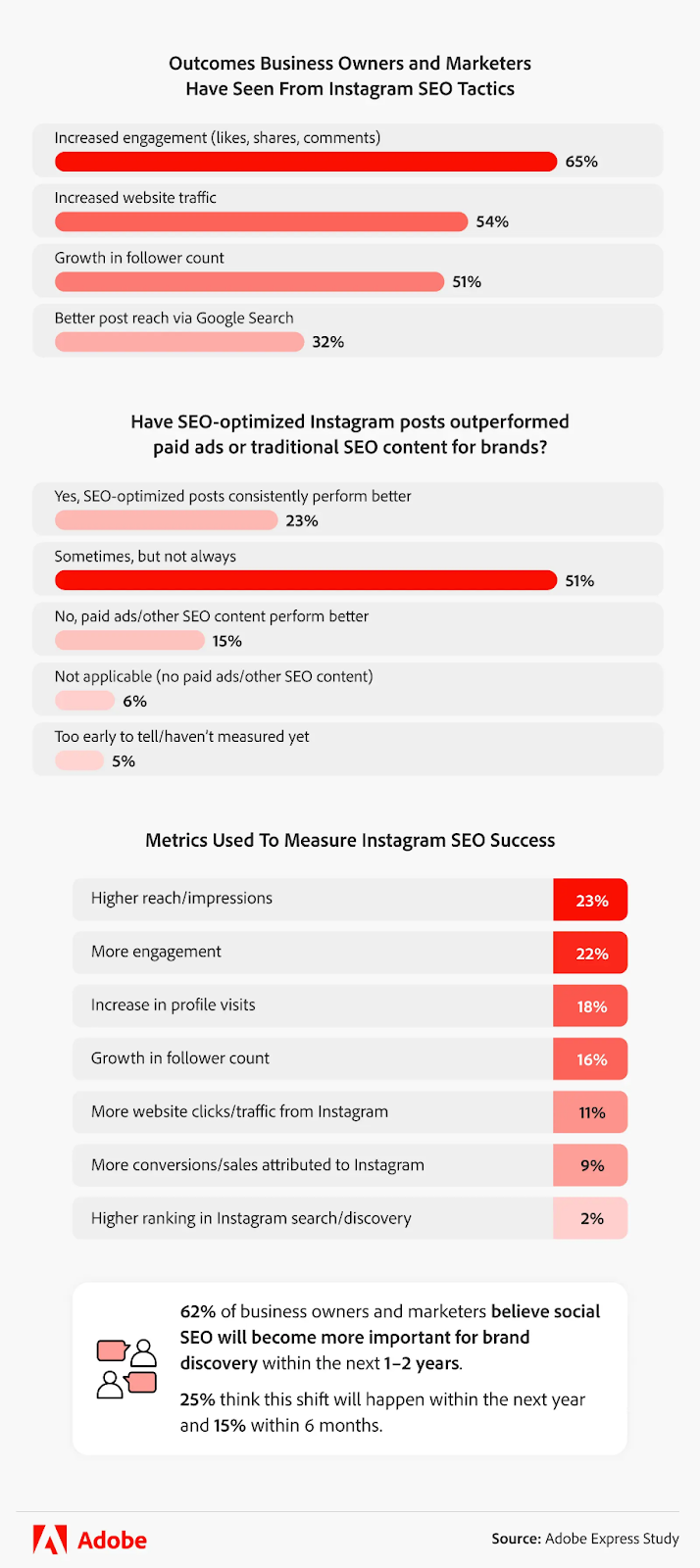
Marketers are rethinking budgets and strategies
Social media’s role in search is pushing brands to redistribute their marketing dollars. On average, businesses now dedicate 23% of their budgets to organic Instagram content, and 58% plan to increase that spend in the next six months.
But growth brings pressure. While Instagram is getting more SEO-friendly, 22% of marketers worry about keeping up with content demand, audience visibility, and engagement. That anxiety climbs to 31% when it comes to TikTok.
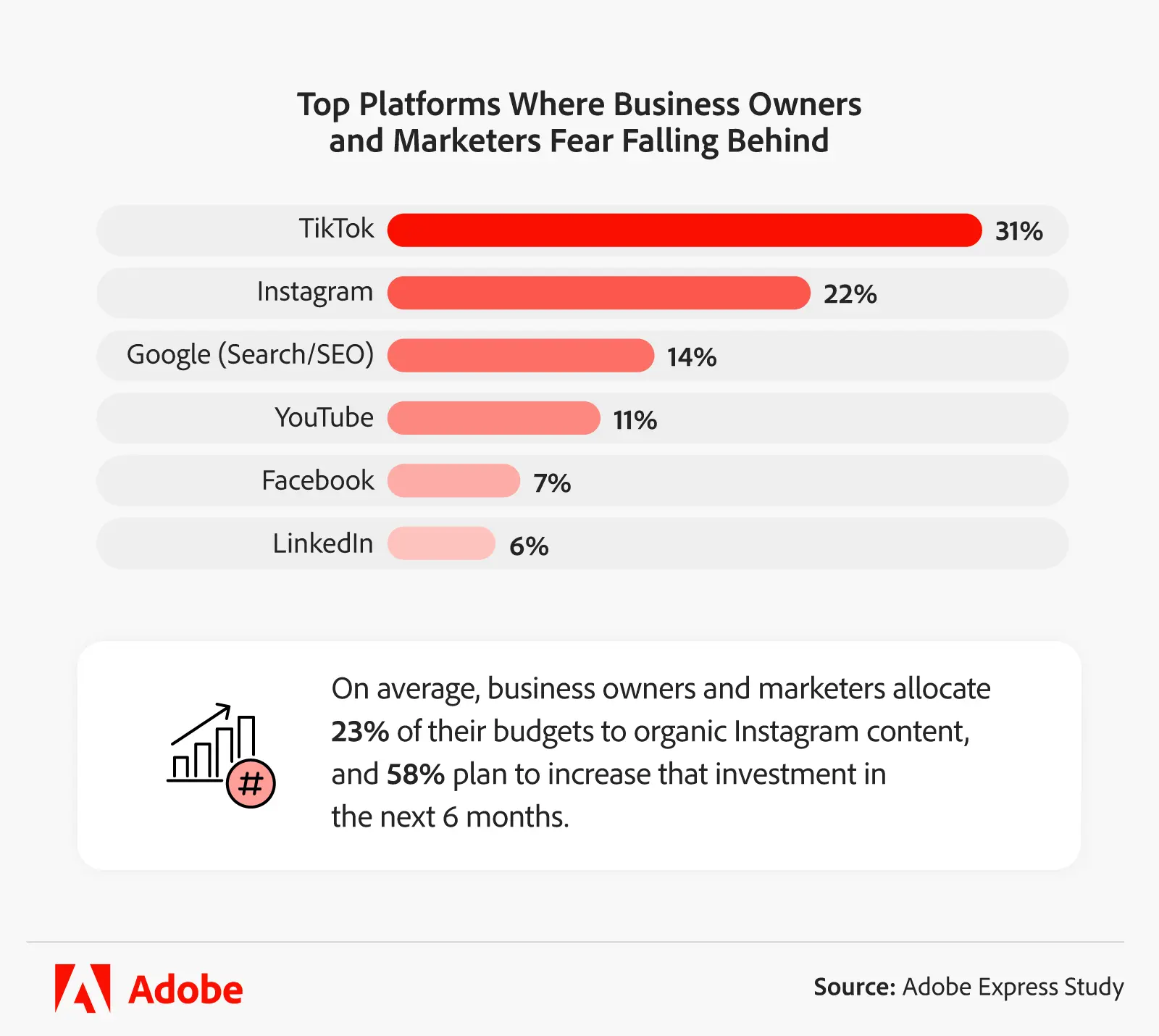
With social platforms like Instagram becoming hybrid discovery engines, marketers are expected to not only post often but post smart, using search strategy in what used to be engagement-only territory.
What marketers should know and do next
Instagram’s SEO integration is reshaping how marketers approach social media. Here’s how to stay ahead:
1. Make your bio and captions SEO-friendly
Your Instagram bio acts like a homepage preview. Make sure it includes relevant keywords for your niche or industry. Apply the same strategy to captions by writing longer posts with natural keyword use and clear descriptions.
2. Shift some SEO and paid media budget to Instagram
If your SEO strategy is only focused on Google text content, you may be missing a channel that now plays double duty as social and search. Consider moving a portion of your budget into consistent, high-quality organic Instagram content.
3. Use scheduling and AI tools to stay consistent
Content planning tools like Adobe Express can help reduce the strain of frequent posting. Their AI Clip Maker, template library, and scheduler can streamline execution while maintaining quality.
4. Track performance beyond Instagram Insights
Don't rely solely on native platform analytics. Layer in tools like Google Analytics and UTM tracking to measure off-platform impact, such as traffic, conversions, and brand lift from optimized Instagram posts.
5. Watch for platform updates
Meta could expand SEO features or introduce ranking factors specific to Instagram. Keep tabs on algorithm shifts, feature rollouts, and evolving search behavior on Google and social alike.
Marketers who adapt early will benefit most from Instagram’s growing role in search. Whether it is rewriting captions, reallocating budget, or investing in social SEO tools, the trend is clear: Instagram isn’t just for social engagement anymore. It's part of your discoverability funnel.
If you’re not optimizing your Instagram posts for search, you’re leaving visibility and growth on the table.
